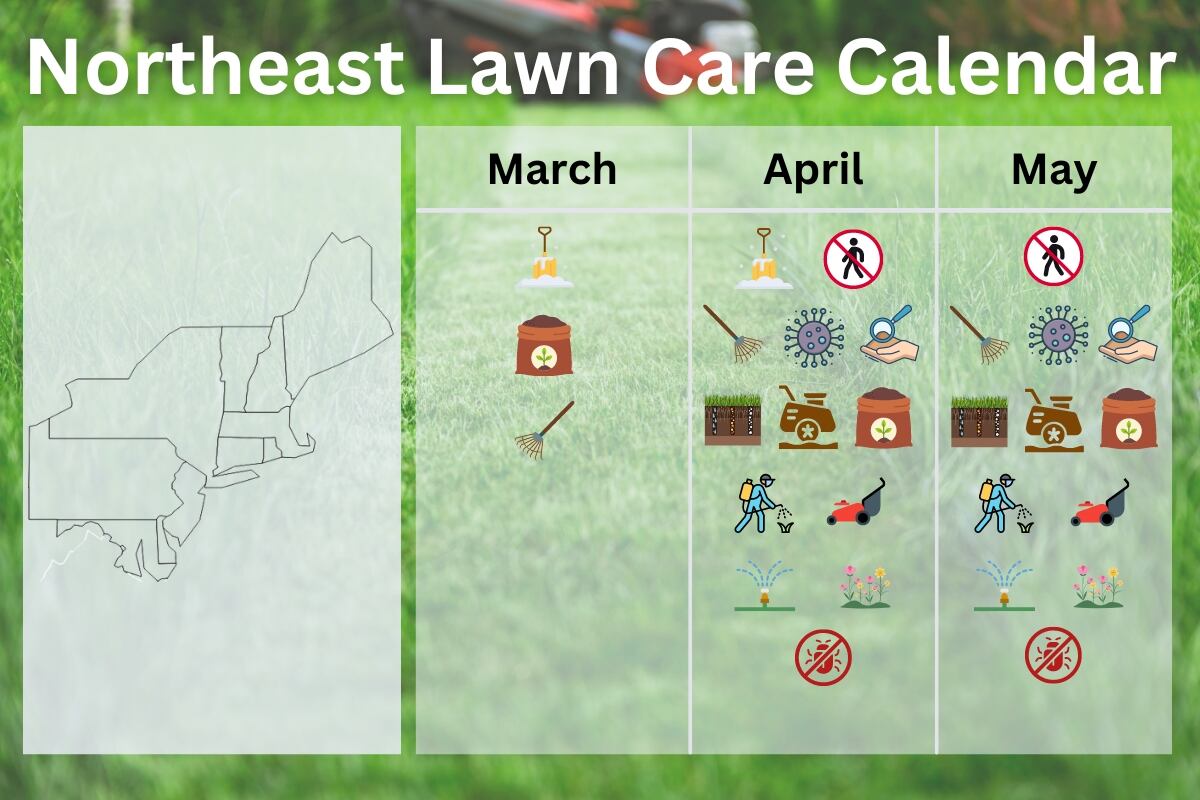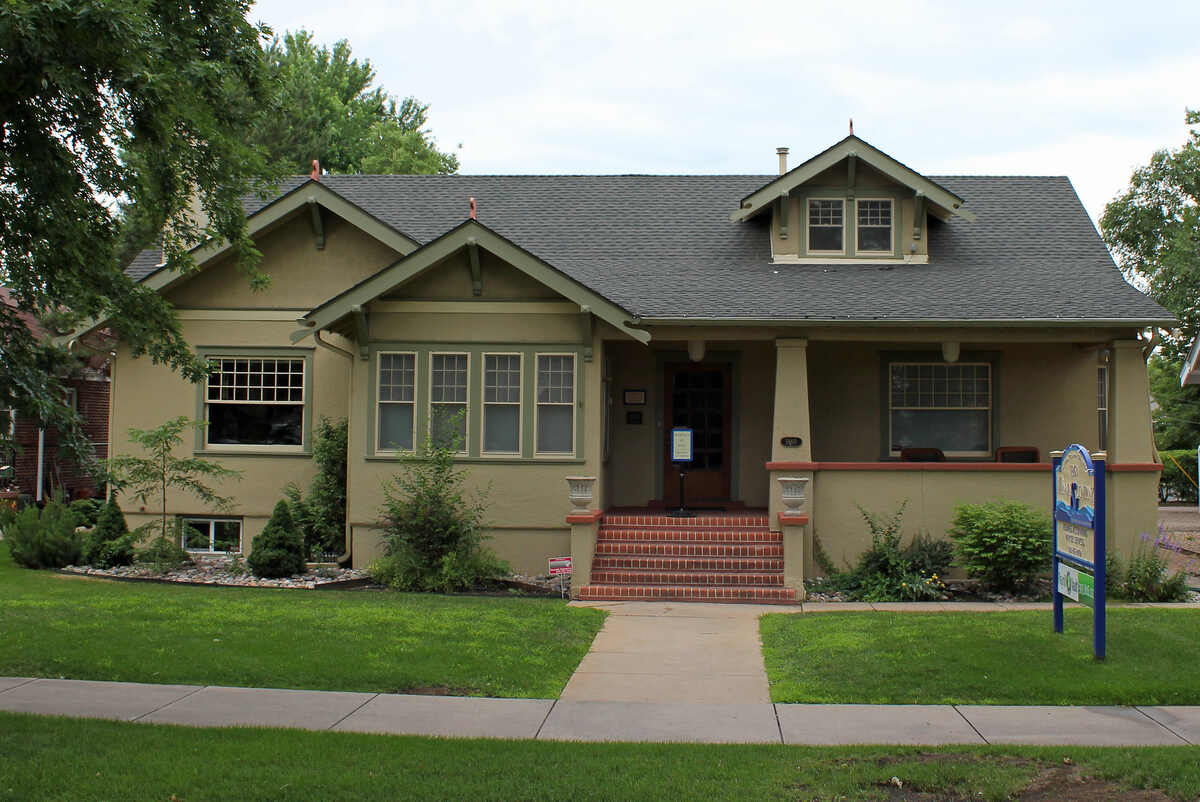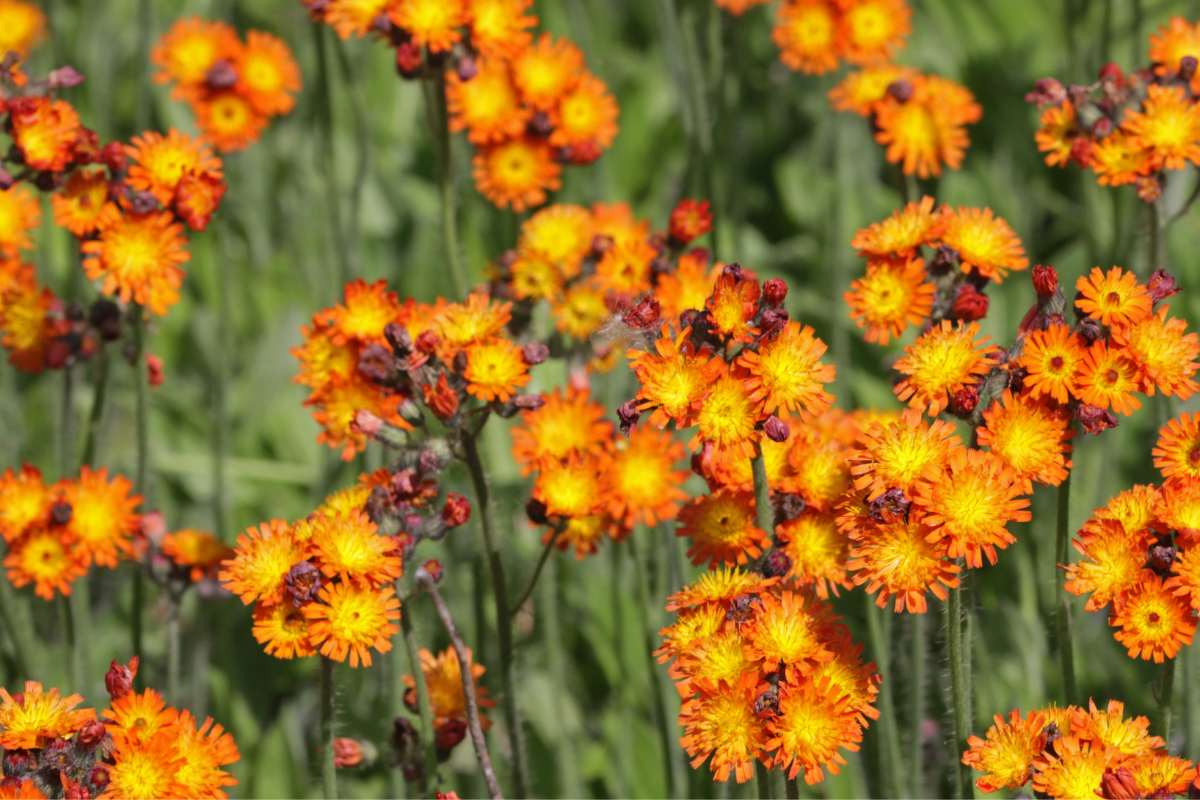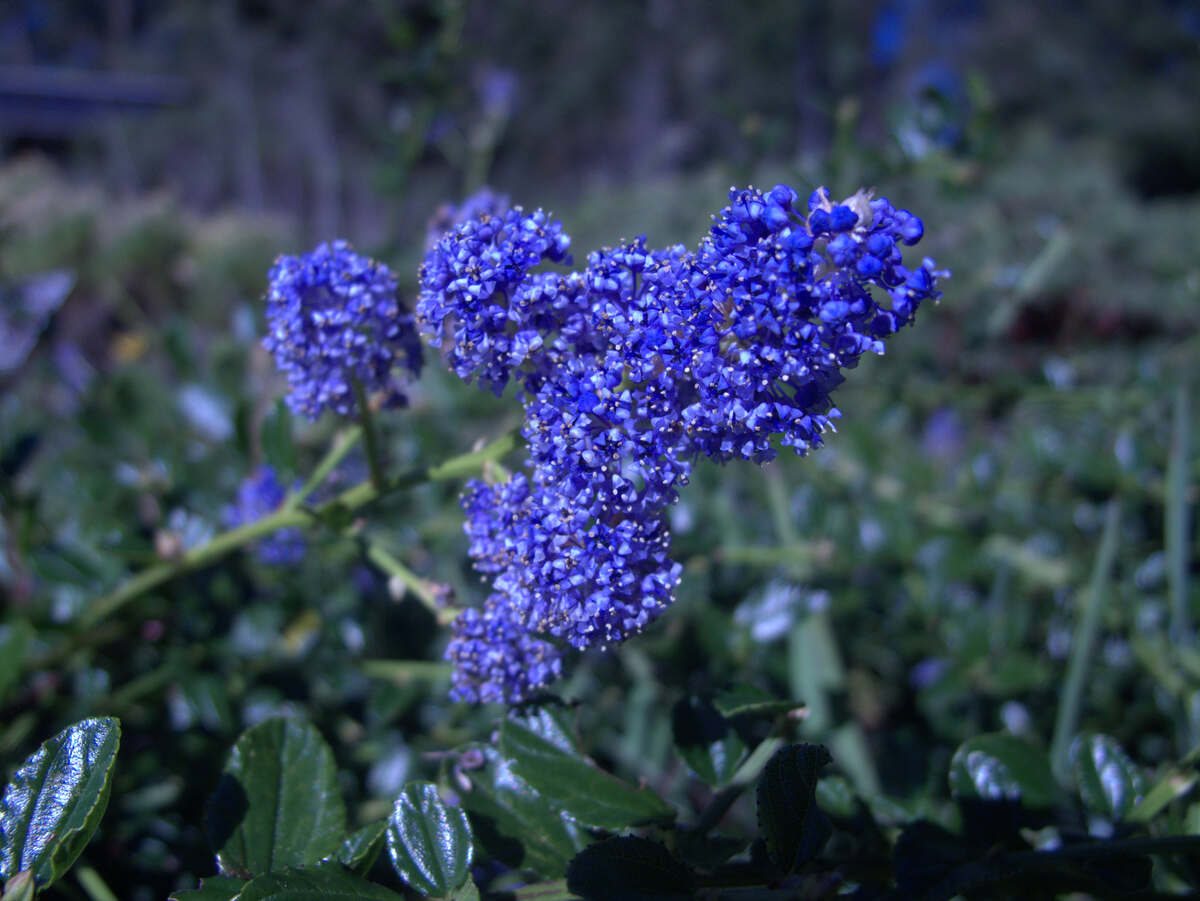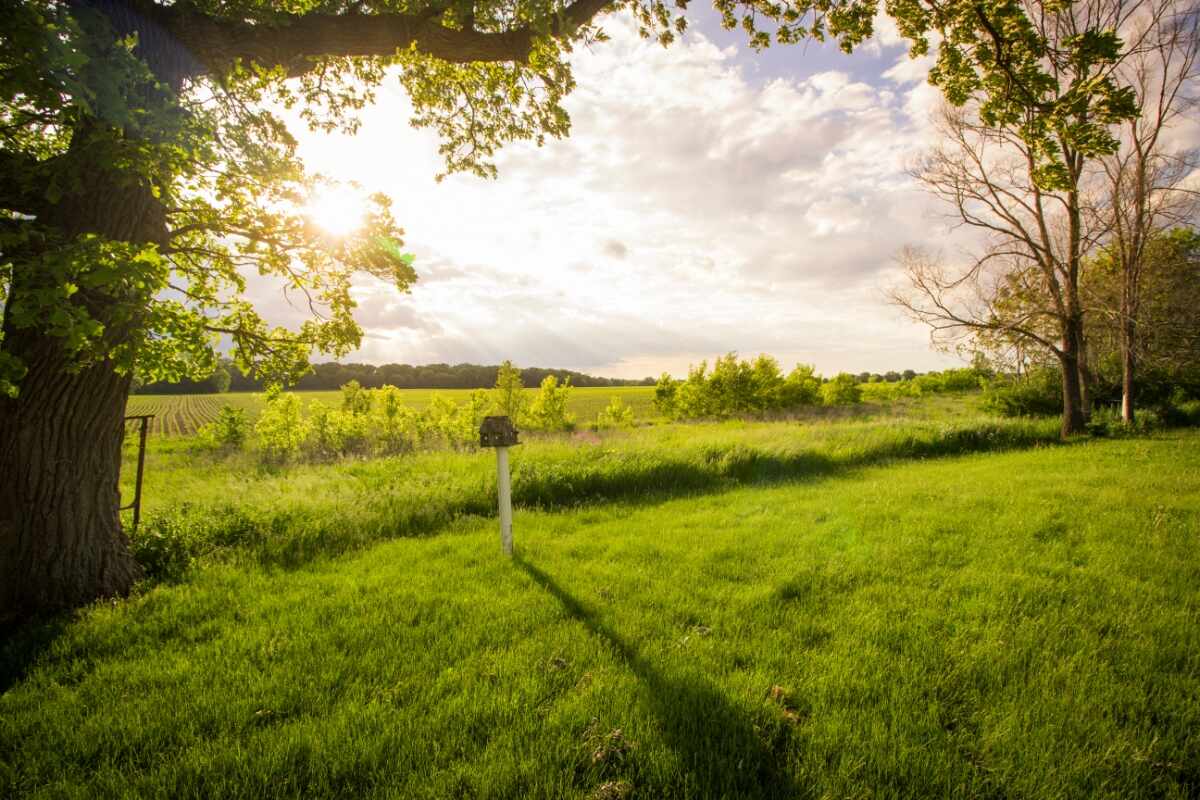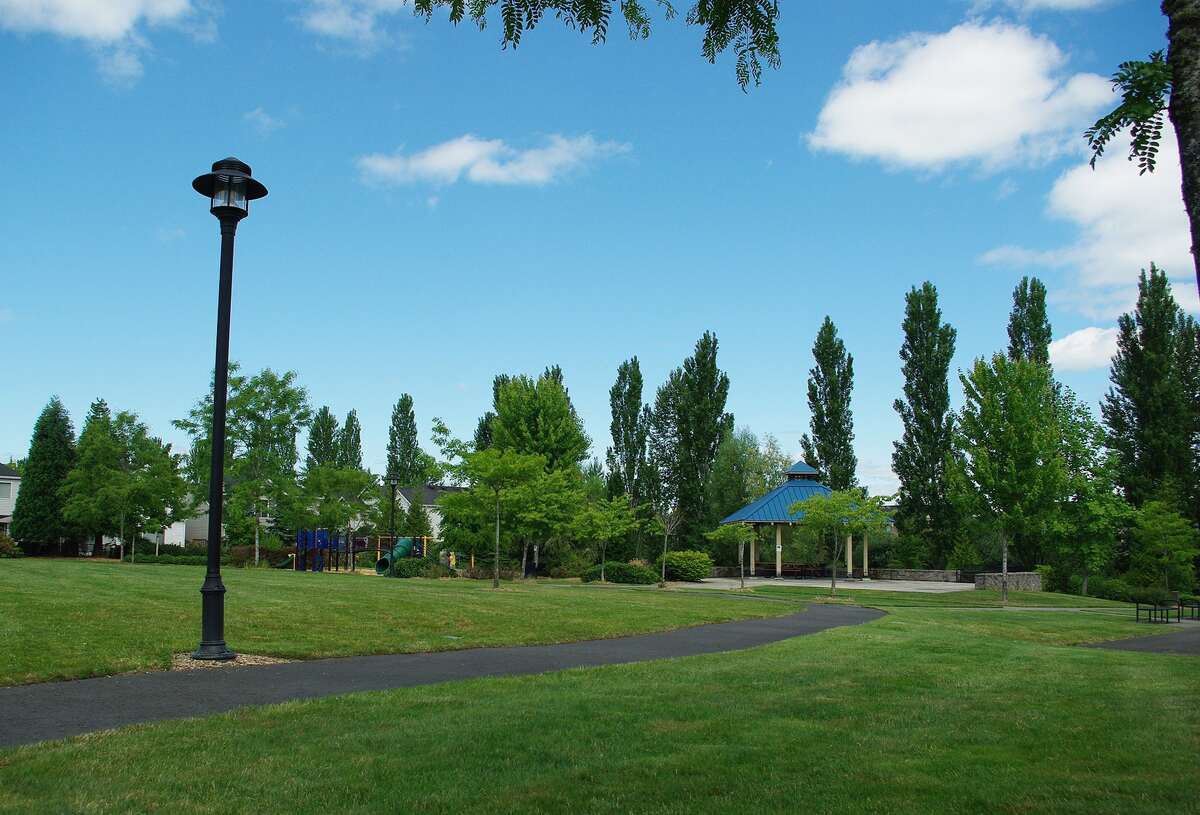
If Oregonians know one thing, it’s to take their lawns seriously. With the state’s diverse geography, from the lush rainforests to the towering peaks of Mount Hood, choosing a turfgrass that can thrive here is essential. Lucky for you, we’ve done the research and rounded up the best grass seed options for Oregon.
And let’s face it, with the generally mild climate, there’s no excuse for not having the best grass on the block. So, if you’re looking for the scoop on the best grass seed for Oregon, you’ve come to the right place. Let’s dig in!
If you’re running out the door to take a hike on a beautiful day in the PNW, save time and skip to our guide on how to choose the best grass seed for your Oregon lawn.
Perennial Ryegrass
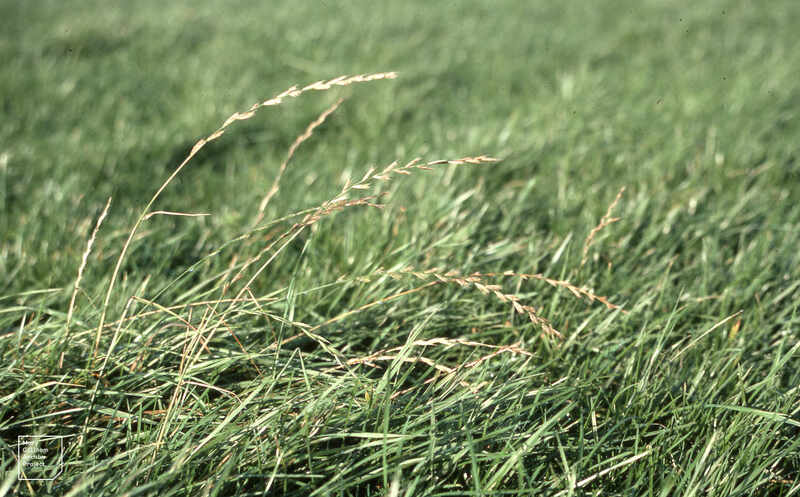
Photo Credit: Dr Mary Gillham Archive Project / Flickr / CC BY 2.0
Perennial ryegrass is like the star athlete of Oregon lawns. Unfortunately, it is not as cold-tolerant as Kentucky bluegrass. Still, it can thrive like a champ in western Oregon, especially for cities in the Willamette Valley with milder winters and scarce snowfall. However, for those in Eastern Oregon, it might not make it through the winter.
One of the reasons why perennial ryegrass is so popular is that it germinates quickly. It can sprout 7 to 10 days after planting, faster than most other grasses. This makes it ideal for those who want to see results quickly, control erosion, or outcompete weeds while other grasses become established.
Classification: Cool-season grass
Spreads by: Has a bunch-type growth habit
Shade tolerance: Low
Drought tolerance: Low
Foot traffic tolerance: High
Maintenance needs: Moderate mowing and fertilization requirements. Thatch is not significant.
Mowing height: Set mowing height to 1.5 to 2.5 inches
Potential for disease: High. Common diseases include gray leaf spot, red thread, and leaf spot/melting-out.
Soil pH: Can grow in soils with a pH between 5 and 8, but prefers between 6 and 7.
Soil type: Prefers good drainage and fertility, but can tolerate some poor drainage.
Other notes: Perennial ryegrass is often used in seed mixtures with Kentucky bluegrass, fine fescue, or both, depending on the soil fertility, amount of shade in the yard, and irrigation needs.
Grass Seed Options:
– Outsidepride Perennial Ryegrass Seed (5 lbs.)
– Eretz ProTurf Perennial Ryegrass Fine Lawn Seed (choose your size)
Kentucky Bluegrass
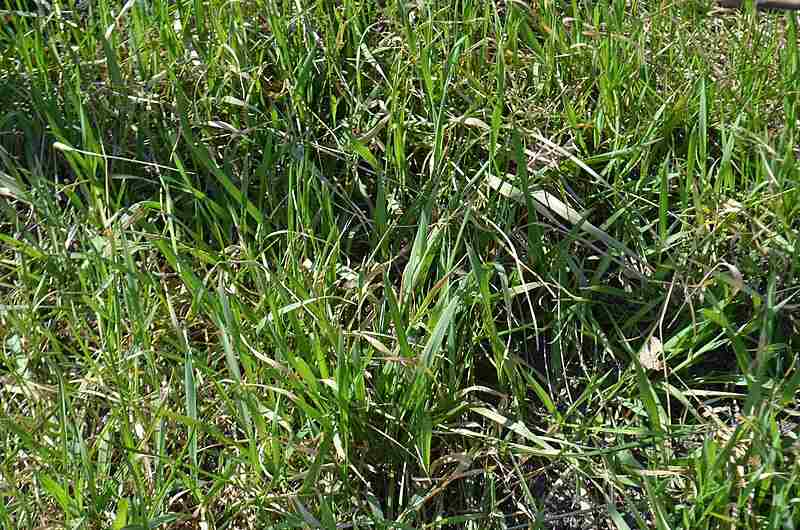
Photo Credit: Ethan2039 / Wikimedia Commons / CC BY-SA 4.0
Look no further if you’re looking for grass that can handle heavy foot traffic. Kentucky bluegrass is known for its exceptional durability, making it ideal for outdoor activities. However, it is a high-maintenance grass, requiring regular watering, dethatching, and fertilizing. But if you’re willing to put in the work, you’ll be rewarded with a beautiful and resilient lawn.
Kentucky bluegrass is a popular choice in Eastern Oregon, where winters can be harsh, due to its cold hardiness. But it’s not just limited to Eastern Oregon. It can also be used in seed mixes in other parts of the state, providing the same durability and eye-catching blue-green color.
Classification: Cool-season grass
Spreads by: Rhizomes
Shade tolerance: Low
Drought tolerance: Moderate
Foot traffic tolerance: Moderate
Maintenance needs: Moderate mowing frequency and high fertilization needs.
Mowing height: Set mowing height between 2.5 and 3.5 inches.
Potential for disease: Moderate to high; prone to several diseases, such as dollar spot, leaf spot, necrotic ring spot, summer patch, and stripe smut.
Soil pH: 6-7.5
Soil type: Performs best in well-drained, heavy soils with high fertility.
Other notes: To sow a new lawn, use 75 to 125 pounds per acre. To overseed, use 40 to 65 pounds per acre.
Grass Seed Options:
– Jonathan Green (11970) Blue Panther Kentucky Bluegrass Grass Seed (3 lbs.)
– SeedRanch Midnight Kentucky Bluegrass Seed (5 lbs.)
Fine Fescues
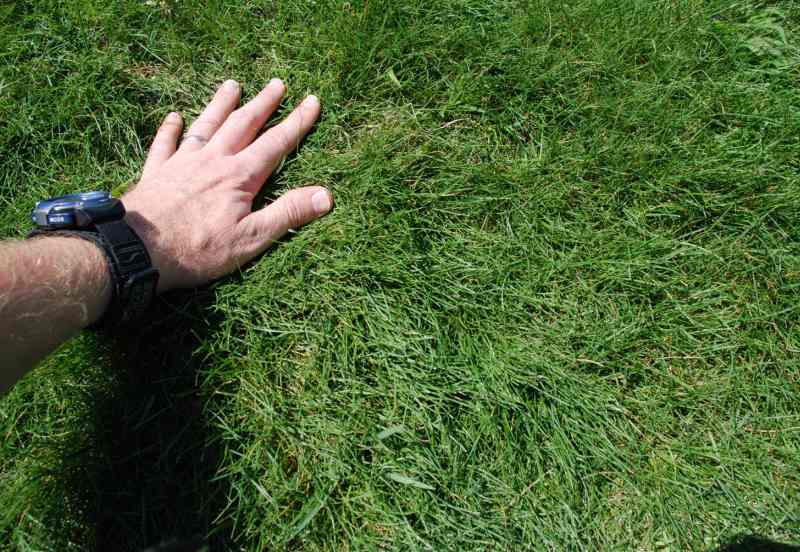
Aaron J. Patton, Ph.D. / Turfgrass Extension Specialist at Purdue University
Fine fescues are a fantastic choice for those who have a lot of shade in their yard or simply don’t want to spend a lot of time watering. These grasses are known for their drought and shade tolerance, and that’s not all.
Fine fescues are also low-maintenance. They don’t require a lot of fertilization or mowing, so you can sit back and relax while your lawn stays green and beautiful. In addition, these grasses are highly adaptable, which means they can thrive in various soil types and conditions, making them an excellent option throughout Oregon.
Classification: Cool-season grass
Spreads by: Creeping red fescue spreads by rhizomes, while other fine fescues are bunch-type grasses, such as Chewings, hard, and sheep fescues.
Shade tolerance: Moderate to High, depending on species
Drought tolerance: Moderate to High, depending on species
Foot traffic tolerance: Low to Moderate, depending on species
Maintenance needs: Low fertilizer and mowing needs
Mowing height: Set mowing height between 2.5 and 4 inches, depending on species.
Potential for disease: Moderate. Common diseases include red thread, leaf spot, dollar spot, summer patch, and powdery mildew.
Soil pH: 6-6.5
Soil type: Will not perform well in wet soil conditions. Prefers drier soils and tolerates a wide range of soil types and fertility.
Other notes: If you’re looking for fine fescues that can withstand drought, hard fescues are the most resilient. On the other hand, if you have a lot of shade in your yard and need grass that can thrive in those conditions, Chewings fescue is the most shade-tolerant option.
Grass Seed Options:
– Outsidepride Legacy Fine Fescue Grass Seed (5 lbs.)
– Eretz Creeping Red Fine Fescue Seed (choose your size)
– Outsidepride Creeping Red Fine Fescue Grass Seed (25 lbs.)
– Outsidepride Hard Fine Fescue Grass Seed (10 lbs.)
Tall Fescue
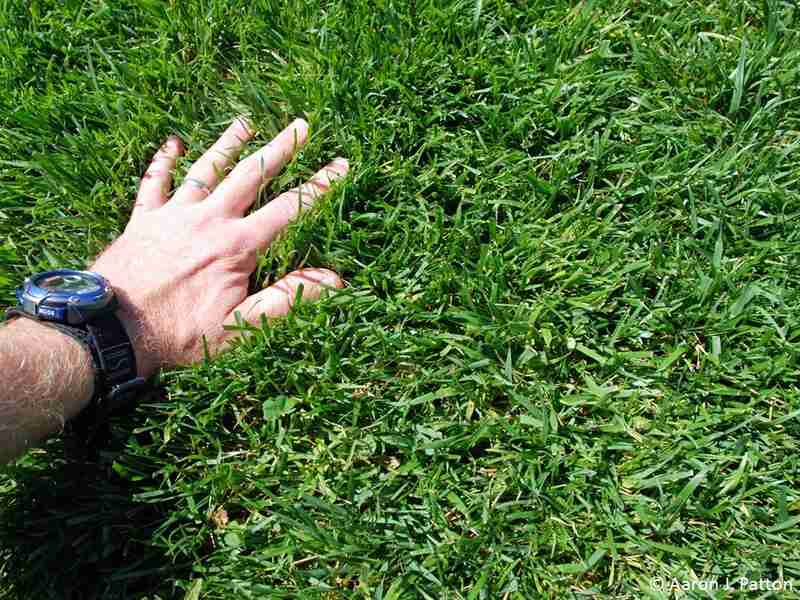
Aaron J. Patton, Ph.D. / Turfgrass Extension Specialist at Purdue University
Looking for a versatile grass that can withstand almost anything? Tall fescue grass is known for its resilience, making it an excellent choice for those who want a lawn that can stand the test of time.
Tall fescue is generally pest and disease resistant, which means you don’t have to worry about it succumbing to common lawn problems. Plus, with its deep root system, tall fescue is the most drought-tolerant of the cool season grasses. This makes it a great option for those living in parts of Oregon that experience long periods of dry weather.
Classification: Cool-season grass
Spreads by: Produces short rhizomes but has a bunch-type growth habit
Shade tolerance: Moderate
Drought tolerance: Moderate to High
Foot traffic tolerance: Moderate
Maintenance needs: Frequent mowing. Does not produce significant thatch.
Mowing height: Set mowing height to 2 inches when grass reaches 3 inches tall.
Potential for disease: Tolerant of most diseases when properly maintained.
Soil pH: 5.5-6.5
Soil type: Adapted to a wide range of soil conditions, but prefers fertile clay soils with good drainage.
Other notes: This grass is slow to establish, so it may take some time before you see the results you’re hoping for.
Grass Seed Options:
– Triple-Play Tall Fescue Grass Seed Blend (5000 sq ft)
– Eretz Kentucky 31 K31 Tall Fescue Grass Seed (choose your size)
– Pennington The Rebels Tall Fescue Grass Seed Mix (7 lb.)
Colonial Bentgrass
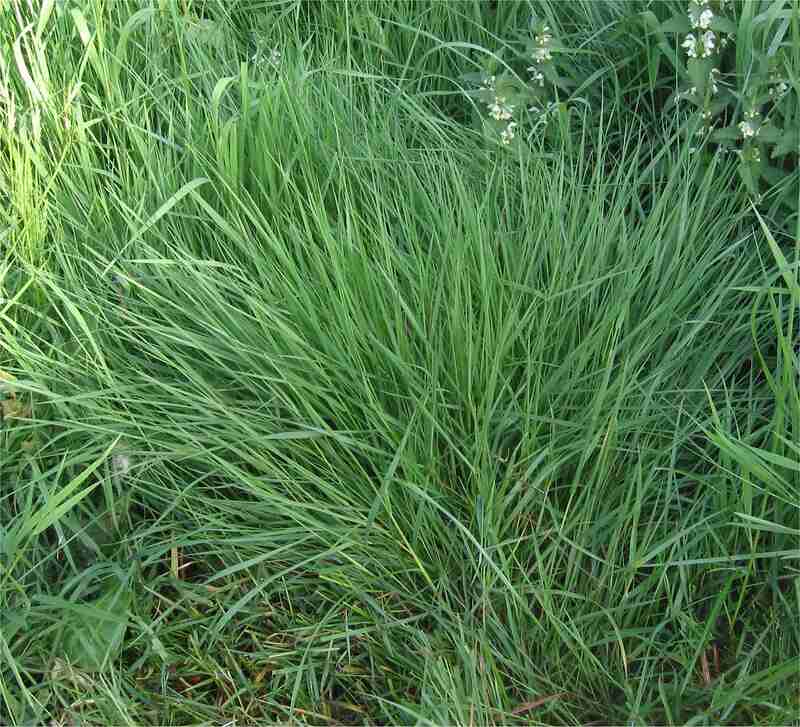
Colonial bentgrass is known for its bright green color and ability to create a dense and even turf, giving your lawn a lush and luxurious look. One of the benefits of colonial bentgrass is that it grows quickly, which means you can enjoy a full and beautiful lawn in no time.
However, this grass is more vulnerable to heat damage and diseases than other cool-season grasses. It requires more moisture than other grasses to survive, so you’ll need to ensure it gets enough water during dry spells.
Classification: Cool-season grass
Spreads by: Short rhizomes that may bring about short stolons
Shade tolerance: Moderate
Drought tolerance: Low
Traffic tolerance: Low
Maintenance needs: Moderate to high. Best when mowed short, at least once weekly.
Recommended mowing height: Set the mowing height between 0.5 and 1 inch.
Potential for Disease: Moderate. Susceptible to Fusarium patch (snow mold) in the winter. Vulnerable to Take-all patch when young but severity decreases as turf develops.
Soil pH: 5.5-6.5
Soil type: Tolerates poor soil conditions, but prefers moist and fertile soil.
Other Notes: Colonial bentgrass is known for its invasive tendencies, meaning it can easily take over and dominate a lawn when added to seed mixtures.
Best Grass Seed for Western Oregon
If you’re living in western Oregon, then you’re in luck when it comes to lawn care. With a warm-summer Mediterranean climate, the region experiences warm and dry summers, and wet winters. This means that you don’t have to worry about choosing a grass seed that can withstand harsh winter conditions or drought.
Here are the best grass seeds for Western Oregon:
- Perennial ryegrass
- Tall fescue
- Fine fescue
- Colonial or creeping bentgrass
Best Grass Seed for Portland, Oregon
With its warm and dry summers and rainy winters, Portland’s unique climate is perfect for growing a beautiful lawn. And with the right grass seed, you can have a lush and vibrant lawn that is the envy of your neighborhood.
Here are the best grass seeds for the Rose City:
- Perennial ryegrass
- Tall fescue
- Fine fescues
- Colonial bentgrass
Best Grass Seed for Eastern Oregon
With a cold semi-arid climate, Eastern Oregon is drier than Western Oregon and experiences more temperature variations throughout the year. Eastern Oregon also experiences colder winters with snowfall. This means that you’ll need to choose a grass seed that can handle the cold temperatures and occasional snow cover.
In addition to the grass types mentioned above, you can also use Kentucky bluegrass, which is known for its cold hardiness and moderate drought tolerance.
How to Choose the Best Grass Seed for Your Oregon Lawn
Just because a grass seed is the bee’s knees for Oregon lawns doesn’t mean it will be a match made in heaven for your yard. Homeowners must consider their yard’s unique quirks before deciding on a grass type.
High-Maintenance vs. Low-Maintenance
Low-maintenance grasses are the way to go if you want to spend more time enjoying your lawn and less time working on it. But, if you’re a true lawn care enthusiast and don’t mind putting in a bit of work, then high-maintenance grasses might be more your style.
High-maintenance grasses: Kentucky bluegrass
Moderate-maintenance grasses: Perennial ryegrass, tall fescue, colonial bentgrass
Low-maintenance grasses: Fine fescues
Wear Tolerance
If you’ve got a family of little ones and furry friends running around, you’ll want to ensure your grass can handle all the pitter-patter. A durable grass seed that can handle heavy foot traffic is crucial in this case. However, if your lawn is just for show and not for play, you don’t need to worry about high foot-traffic tolerance.
High traffic tolerance: Perennial ryegrass
Moderate traffic tolerance: Kentucky bluegrass, tall fescue, colonial bentgrass
Low traffic tolerance: Fine fescues
Shade Tolerance
It’s essential to take the time to assess your yard’s shade level before selecting a grass seed. Consider the position of trees and hardscapes and the number of hours your lawn is shaded throughout the day, since some grass types need full sun to thrive.
High shade tolerance: Fine fescues
Moderate shade tolerance: Tall fescue, colonial bentgrass
Low shade tolerance: Kentucky bluegrass, perennial ryegrass
Bring the Professionals
Instead of stressing out about grass seeds, why not enlist the help of an Oregon lawn care pro near you? We have trusted professionals in Portland, Salem, Gresham, and many more cities across the Beaver State.
Main Image Credit: M.O. Stevens / Wikimedia Commons / CC BY-SA 3.0
LawnStarter participates in the Amazon Services LLC Associates Program, an affiliate advertising program. LawnStarter may earn revenue from products promoted in this article.
